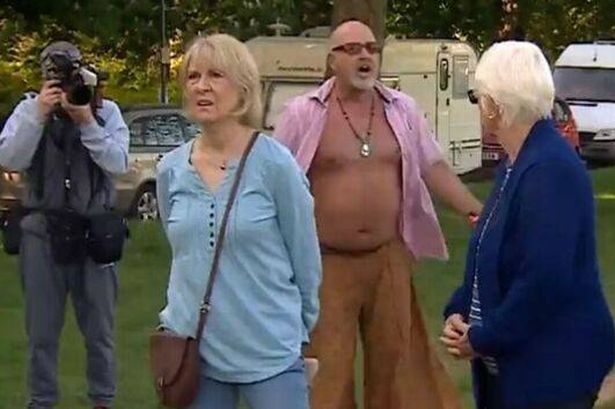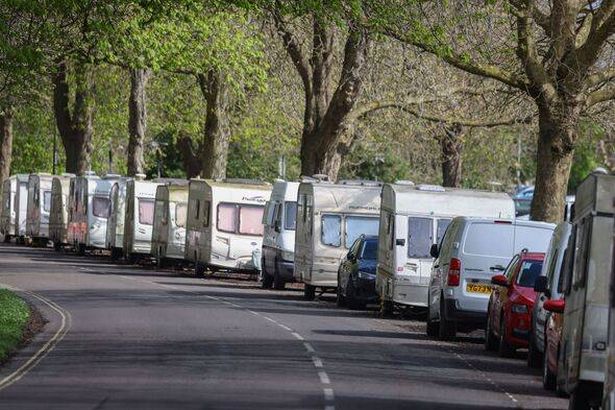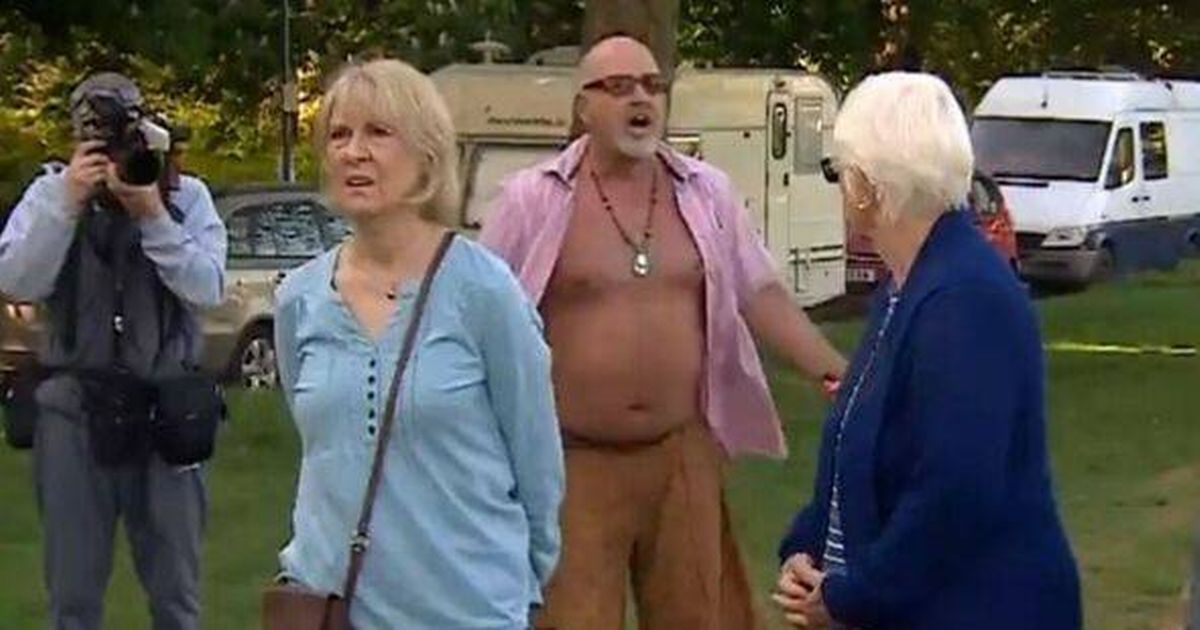The man lives in a converted horse box A screenshot from BBC footage showing a man confront a woman on Clifton Down in Bristol(Image: BBC)
A screenshot from BBC footage showing a man confront a woman on Clifton Down in Bristol(Image: BBC)
A heated exchange erupted between a man living in a converted horse box and a local Bristol woman was caught on camera.
Residents of Clifton Downs are urging the van dwellers to vacate, citing instances of a minority disposing of toilet waste in drains, gardens, and bushes.
The man fired back at the woman’s assertion that he shouldn’t be living on the city’s open parkland, saying: “Why shouldn’t I? What’s it got to do with you?”
The woman responded with a single word – ‘attitude’ – prompting the man to say: “No! It’s called standing up for rights.”
Tensions ran high during a BBC report from Clifton Down, where numerous individuals have made their homes in vans, caravans, and motorhomes along roads bordering the green space.
Those living in vans offer a range of reasons for their lifestyle choice.
Some view it as a deliberate decision, while others point to Bristol’s exorbitant rents, housing costs, and living expenses as leaving them without alternative options.
Additionally, certain individuals face specific vulnerabilities.
A Facebook group, Protect the Downs, has been established by locals, with former RAF serviceman Tony Nelson at the helm, reports the Express.
In an interview with the BBC, Mr Nelson said that the few responsible van dwellers have never posed an issue but he claims this is not representative of the entire group.
 A view of vans and caravans by the side of a road in Clifton Down(Image: Paul Gillis / Reach PLC)
A view of vans and caravans by the side of a road in Clifton Down(Image: Paul Gillis / Reach PLC)
Nelson said: “This used to be famous across the country.
“I was aware of the Bristol Downs even when I lived in East Anglia, so I know it was once a treasured spot. Now, it’s become a sink.”
Van dweller Danny, who chose only to share his first name, slammed some of the posts in a Facebook group as ‘absolutely ludicrous’, claiming they almost amount to hate crime.
Speaking with the BBC, he revealed that over time he’s contributed £35,000 in business rates through arts and events companies he has administered.
Bristol is home to approximately 680 vehicles being used as dwellings, which can be found parked on roadsides, private properties, occupied encampments, and council-run sites—these spots provide crucial amenities like water, loos, and waste disposal.
The city council says it is actively working on devising strategies to both aid van dwellers and attend to the concerns of the local populace.
Earlier in the year, the Sneyd Park Residents Association put together a meeting, drawing a crowd to St Alban’s Church in Redland—confirming the high level of community interest.
This gathering came in the wake of a probing report on Bristol’s increasing population of vehicle residents, indicating the figures have quadrupled from roughly 150 in 2019 since before the pandemic hit.
On a visit to the Downs by the Express, locals voiced their thoughts, suggesting the city needs more affordable housing and social stock.
Whereas a different camp demanded firmer measures to “get rid” of the van dwellers.
Defiantly, Danny said: “They will never get rid of us. They can do whatever they like, but people have lived on that road for years and years.”
Councillor Barry Parsons, chair of the council’s Homes and Housing Delivery Committee, said to the Express in March: “We know that we need to reduce the need for so many people to live in vehicles, and remain committed to increasing the number of well-built, affordable homes in Bristol so people have a safe and secure place they can call home.”
